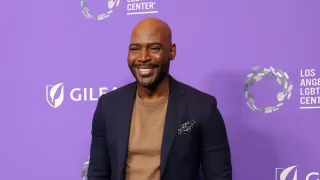December 7, 2020
Biden May Have Won Election Due to LGBTQ Voters, New Report Says
Kevin Schattenkirk READ TIME: 2 MIN.
A new report published by the Washington Post suggests that President-elect Joe Biden may have won the 2020 election because of higher LGBTQ voter turnout.
The report highlights three points to consider – higher LGBT identification among voters than in previous elections, overwhelming support of Biden among those constituents, and the impact of that community in battleground states.
Where higher LGBT identification among voters than in previous elections is concerned, the Post notes that, according to the National Exit Poll and AP VoteCast, until "Until 2018, the proportion of the electorate identifying somewhere on the rainbow continuum has ranged from 3 to 5 percent – roughly the proportion of the U.S. population who say the same. But this year, it jumped to 7 or 8 percent."
Furthermore, Gallup found that "8.2 percent of millennials identify as LGBT, while only 2.4 percent of baby boomers do. These young generations appear to be showing up to vote." Openly identifying as such is, of course, due to greater visibility and acceptance of the LGBTQ community. But the suggestion here is that more LGBTQ people are turning out to vote, particularly younger constituents for whom this was the first presidential election in which they were eligible to vote.
Where support for the Biden/Harris ticket is concerned, according to the National Exit Poll, "64 percent of LGBT voters favored Biden and 27 percent supported Trump." As the Washington Post notes, if these figures are accurate, Trump garnered more LGBT support than any Republican candidate for the office. In slightly sharper contrast, AP VoteCast put the figures at 73 percent for Biden and 25 percent for Trump – which would more accurately reflect past voting trends. The authors of the report note a concern for accuracy in this part of the polling data.
Finally, in battleground states such as Arizona, Georgia, Nevada, Pennsylvania, and Wisconsin, polling suggests that LGBT voters turned out for Biden while non-LGBT voters supported Trump. The authors state, "In Georgia, for example, Biden won narrowly with 49.5 percent of the vote to 49.3 percent of Trump's vote. According to AP VoteCast, 53 percent of non-LGBT voters cast ballots for Trump. In that state, LGBT people made up 9 percent of the electorate, which means that 88 percent of LGBT voters had to choose Biden for Biden to win." Apparently, this reflects similar results in the other battleground states. "According to our calculations, 89 percent of LGBT voters in Arizona supported Biden, as did 73 percent in Nevada, 78 percent in Pennsylvania and 70 percent in Wisconsin.
Had LGBT voters stayed home, Trump might well have won the 2020 presidential election."






